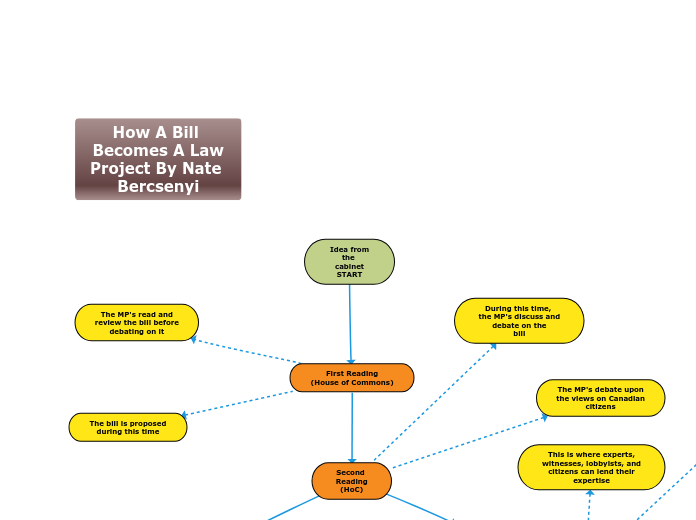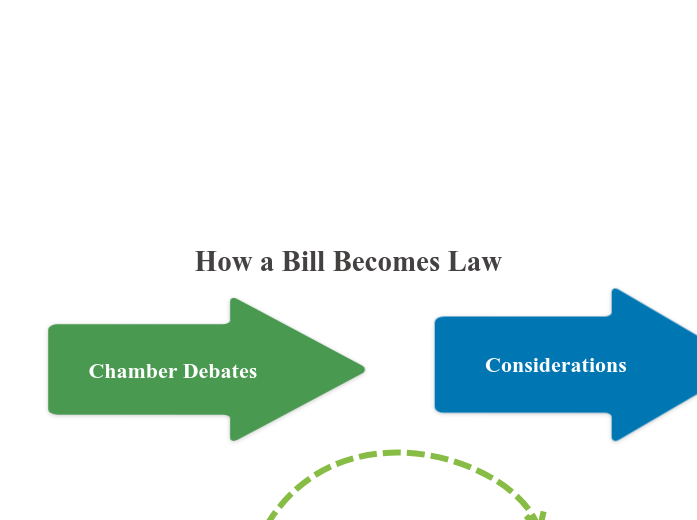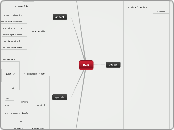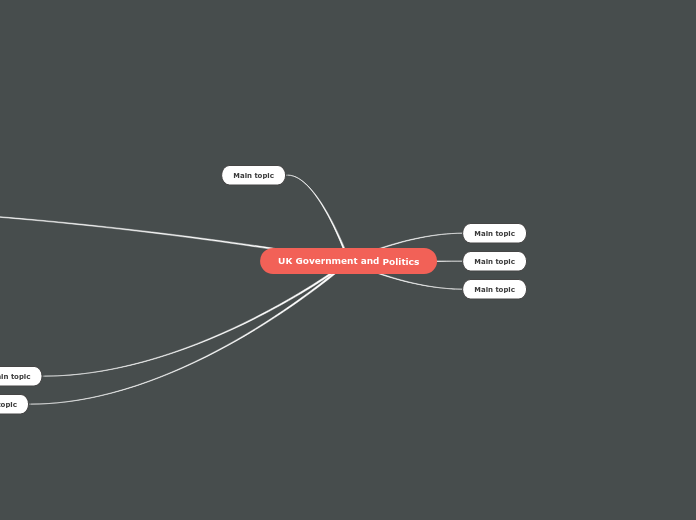Royal Assent
Governor General
gives royal assent (formality)
and signs off the bill
to become a law
END
How A Bill Becomes A Law
Project By Nate Bercsenyi
Third Reading
(Senate)
The final bill is
presented, but not
voted on
Debate and vote
on Senate amendments
(HoC)
Amendments made
by the senate are voted
on by the MP's
Accept Some
or
Reject All
Debate and
vote based on
HoC decision
Senators can make
new amendments in
hopes of the MP's
accepting the bill
Reject
Accept
Accept All
Nothing happens
END
Second Reading
(HoC)
The MP's debate upon
the views on Canadian
citizens
During this time,
the MP's discuss and
debate on the
bill
Study Bill
To get more detail about
the bill
Committee
Stage
(HoC)
Does NOT take
place in the HoC
This is where experts,
witnesses, lobbyists, and
citizens can lend their
expertise
Amend Bill
Requesting further
changes
Report Stage
(HoC)
The new bill from
the committee stage
is put into action
More
Amendments
Third Reading
(HoC)
This is the time
where MP's have
the final draft of
the bill and they
debate on the
final bill
Senate
The senate CANNOT
REJECT or get
rid of any bill
First Reading
(Senate)
The senators ask themselves,
"How will this affect the
minorities and regions
of Canada?"
NO DEBATE happens
during this time
The bill is presented
to the senators
Second
Reading
(Senate)
This is not a
debate, its a
discussion
Senators can provide
their opinions on the
bill at this time
Committee
Stage
(Senate)
Just like the Hoc,
experts are called in
to give their opinion
on the bill
Report Stage
(Senate)
The final report gets
made with the amendments
from the committee stage
No More
Amendments
Accept Bill
Reject Bill
Idea from
the cabinet
START
First Reading
(House of Commons)
The MP's read and
review the bill before
debating on it
The bill is proposed
during this time









